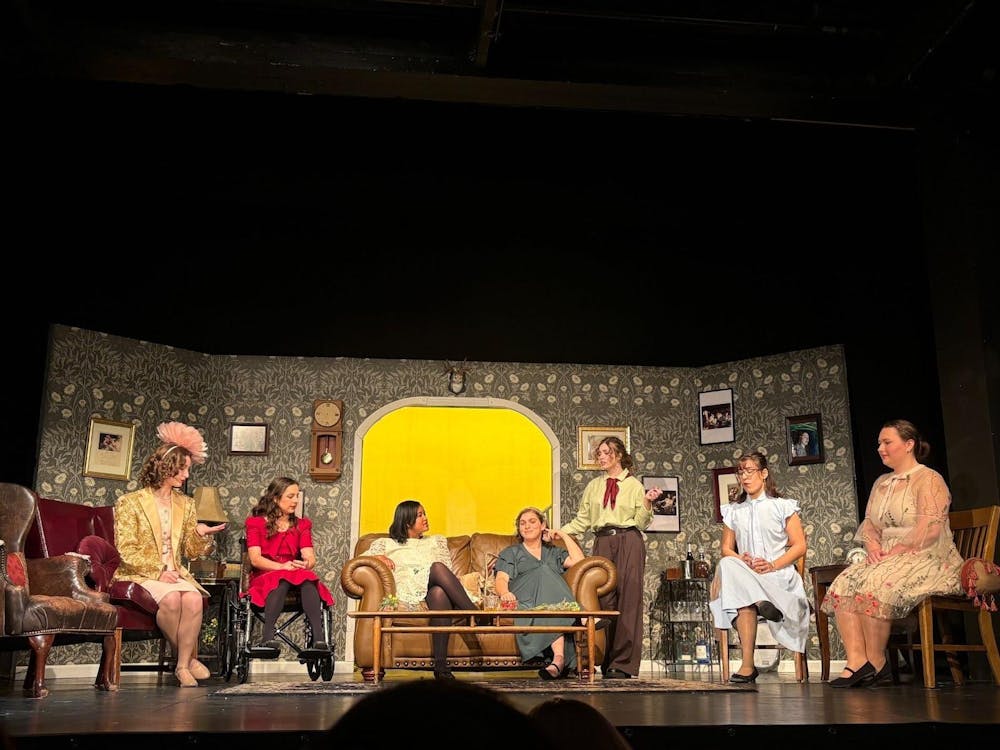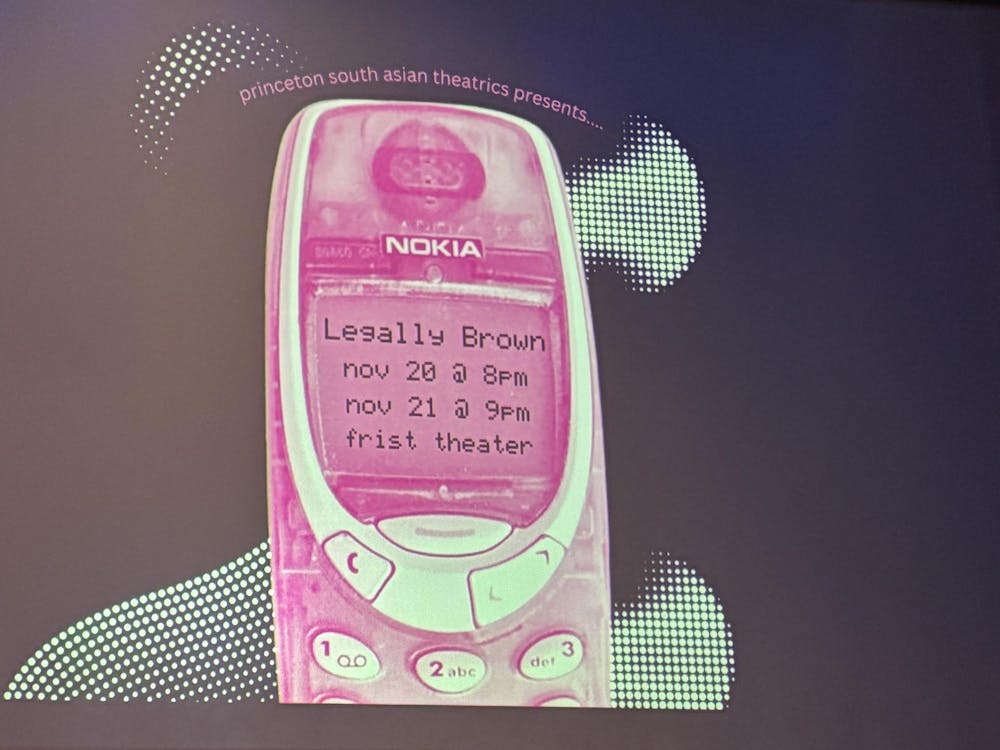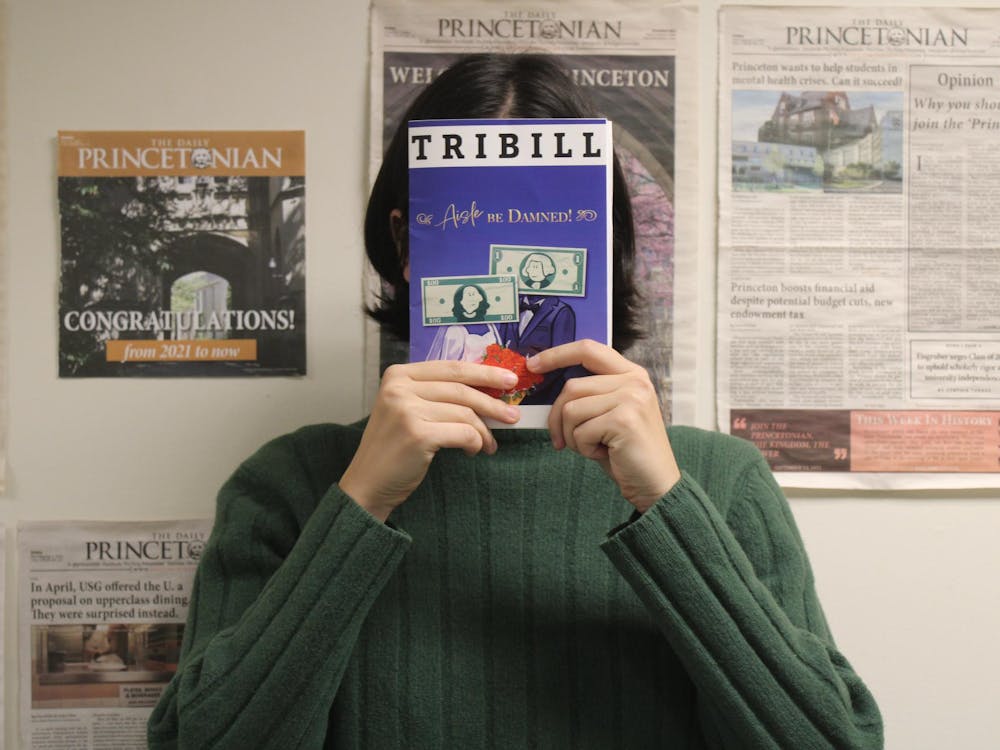What do you get when you combine seven characters with varying degrees of psychological trauma and a moving storyline weaving together family, loss and hope? The result is David Lindsay-Abaire’s “Fuddy Meers,” a whirlwind of a tragicomedy that blasts the audience with moments of hilarity and gravity. The cast and crew come together to deliver an excellent performance of this modern play.
The play centers on the life of Claire, a middle-aged, divorced and remarried mother. She suffers from a rare condition known as psychogenic amnesia, and every morning when she wakes up, she has no recollection of her past. The audience experiences much of the play through Claire’s eyes, as together Claire and the audience gradually pick up hints about Claire’s history. The first scene opens upon her husband Richard’s rushing into their bedroom to greet her when she wakes up one day. Richard, portrayed by David Cruikshank ’16, runs through their morning routine of briefing Claire (Nathalie Ellis-Einhorn ’16) on her likes, dislikes and basic information about their family. While the tender attachment that Richard feels for Claire is present, he is a stranger to her, and after a short exchange, he awkwardly leaves to take a shower.
The plot accelerates as Pat Rounds ’15 makes a dramatic entrance, bursting onto the stage as a masked man with a limp, a lisp and a broken manacle dangling from his wrist, and claims to be Claire’s brother, Zach. Rounds’ performance as the brooding Limping Man is among the best of this show, as he alternately begs, cajoles and threatens Claire to get what he wants. Rounds succeeds in endowing his character with intertwining layers of complexity — his character is not only physically scarred, but also psychologically damaged. Makeup designer Minerva Pedroza ’14 makes the Limping Man’s disfiguration sufficiently terrifying, yet not over-the-top. The Limping Man’s interactions with the different characters hint at Claire and his shared history: Claire’s mother, Gertie (Juliet Garrett ’15), treats him coldly, and Claire’s son, Kenny (Matt Barouch ’16), strongly dislikes him. As Rounds stomps and rages across the stage, the audience slowly begins to understand the deep personal enmities and friendships that link these characters.
As stirring as the arguments and fights in the play are, the quieter moments do just as much to enhance the play’s mood, particularly Claire’s random moments of sudden lucidity about her past. Ellis-Einhorn imbues Claire’s expositions of her memories with a nostalgic longing — her mother’s home triggers some of her recollections of the simple, happy days of her youth. In addition to these poignant remembrances, occasionally Claire suffers from auditory hallucinations of carnival calliope music and barking dogs. These moments come and go intermittently throughout the play, though it is never clear what exactly triggers the sudden onset of these hallucinations. Although their relevance becomes apparent later on, their presentation seems to lack a certain cohesiveness: These hallucinations are not as tightly woven into the fabric of the play.
The versatile set serves to heighten the sense of forgetful loss that Claire feels. Set designer Wesley Cornwell ’16 has created Gertie’s kitchen, where much of the play takes place, with mostly bare, white walls. The sparseness of this set subtly reminds the audience that Claire is a “blank slate,” and that each day she awakens with her mind as bare as Gertie’s kitchen.
“Fuddy Meers” is not without moments of levity. Steven Tran ’15 as a puppet-wielding escaped convict and Kristen Coke ’16 as a “cop” both provide a few doses of comic relief. Despite these moments, “Fuddy Meers” is, on the whole, a very serious play. As director Tyler Lawrence ’16 notes, “in reality, comedy and drama coexist.” This play confronts the audience with a stark image of reality. Even the playbill reminds viewers that the setting is “Sometime almost like the present; someplace almost like here.” “Fuddy Meers” challenges the audience’s preconceptions of theatrical drama to create a reflective space for both the characters on stage and the viewers.
4.5 out of 5 paws
Pros: Rounds’ excellent performance; balance of humor with seriousness

Cons: Slow start; disjointed hallucinations








